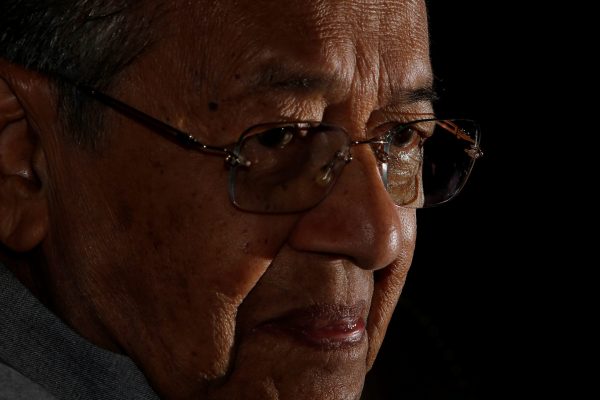The challenges are many. The judiciary needs new and firm guarantees of its independence and competence. Official bodies that regulate elections, fight corruption and cope with crime require foolproof insulation from political meddling. The federal system must be revitalised to ward off discontent and separatism in the Borneo states of Sabah and Sarawak, whose powers have been eroded and resources exploited by the former BN central government and its local allies. Malaysia’s Chinese and Indian minorities are strong supporters of the new government and need to find their way into the country’s mainstream after a long period of marginalisation. Religious minorities have to be freed from harassment, even persecution, by an overblown religious bureaucracy that also victimises moderate Muslims and members of dissenting Islamic sects. A country that lost large portions of political freedom confronts a heavy agenda of revitalisation.
Prime Minister Mahathir Mohamad might be thought an unlikely reformer, given his prior record in the office from 1981 to 2003. But his capacity to get things done — including a major progressive reform of Islamic law that he commissioned in the 1980s — should serve him well.
As head of the smallest party in a four-party coalition, he will be obliged to heed the voices of his partners in Anwar Ibrahim’s multi-ethnic but Malay-majority People’s Justice Party (PKR), the mainly Chinese and Indian Democratic Action Party (DAP) and the moderate Muslim National Trust Party (Amanah). All four are represented in a cabinet that consists of a mix of fresh faces and leaders who are experienced in running what were previously opposition states. It is far more heterogeneous than the BN’s last cabinet.
Many problems are urgent, and short-term remedies have already been initiated. Personnel of doubtful probity have been removed from important commissions, which have also been taken out of the Prime Minister’s Office. A clean-up of the police is underway, and two senior judges whose appointments were seen by the bar as unlawful have resigned. The new government has been quick to act when it comes to tarnished officials, and it has promised to repeal oppressive laws.
Systemic reforms will be harder. Perhaps least difficult will be revision of relations with the two Borneo states, because a blueprint already exists. Malaysia’s central government violated commitments to Sabah and Sarawak by respecting neither their autonomy nor their claim on their own resources. A negotiated outcome on both states should be facilitated by the original agreement, made in 1963, and by the disproportionate number of seats the states occupy on government benches in Parliament.
Creating real independence for institutional bodies that need to be free of partisan meddling is more challenging. That will require borrowing of techniques developed elsewhere. At the very least, durable institutions depend on deliberate decisions that are made ceremoniously, are well recorded, and are widely agreed, so that any violation will be immediately obvious.
Knottier still are problems of inter-ethnic relations. Chinese and Indian voters overwhelmingly cast ballots for the new government, regardless of the ethnic identity of the specific candidate. Disaffected by discrimination, they are expecting a new deal. This expectation may well be fulfilled by a new generation of Malay politicians who consider these voters fellow citizens.
A major obstacle is the split among Malay voters. Only about 30 per cent of Malays voted for Pakatan candidates, and the now opposition Barisan Nasional received almost no votes from non-Malays. Malay voters have become used to claims that the Pakatan is really controlled by its Chinese component, the DAP. Malay parties in the governing coalition will be wary of providing anything that can be interpreted as confirmation of this claim. There have already been complaints about appointments of non-Malays to important positions.
There has also been resistance to reforming the religious bureaucracies that led the religious oppression of the last half-decade. The Department of Islamic Advancement of Malaysia and its subsidiaries in every state have been responsible for suppressing minority religions and independent religious thought and for instigating police raids and prosecutions of Christians and Islamic dissenters. Its director-general has been replaced, but its ranks need a shakeup that can only proceed gradually.
Formerly moderate and tolerant, Malaysian Islamic opinion and practice have become notably narrower in recent years. Opposition parties will be looking for signs of such forbidden dogmas as ‘liberalism’ and ‘secularism’. The revitalisation of judicial independence should aid in preventing the worst abuses, countenanced as they were by judges who were tolerant of the machinations of the previous regime.
The Malaysian Constitution is decidedly democratic and contains clear guarantees of religious freedom that were badly misinterpreted in recent years. Still, the most urgent parts of a democracy agenda — non-discrimination and freedom of thought — may be hard to secure rapidly or fully given the constellation of forces now sitting in Malaysia’s Parliament.
Donald L Horowitz is the James B Duke Professor of Law and Political Science Emeritus at Duke University.

